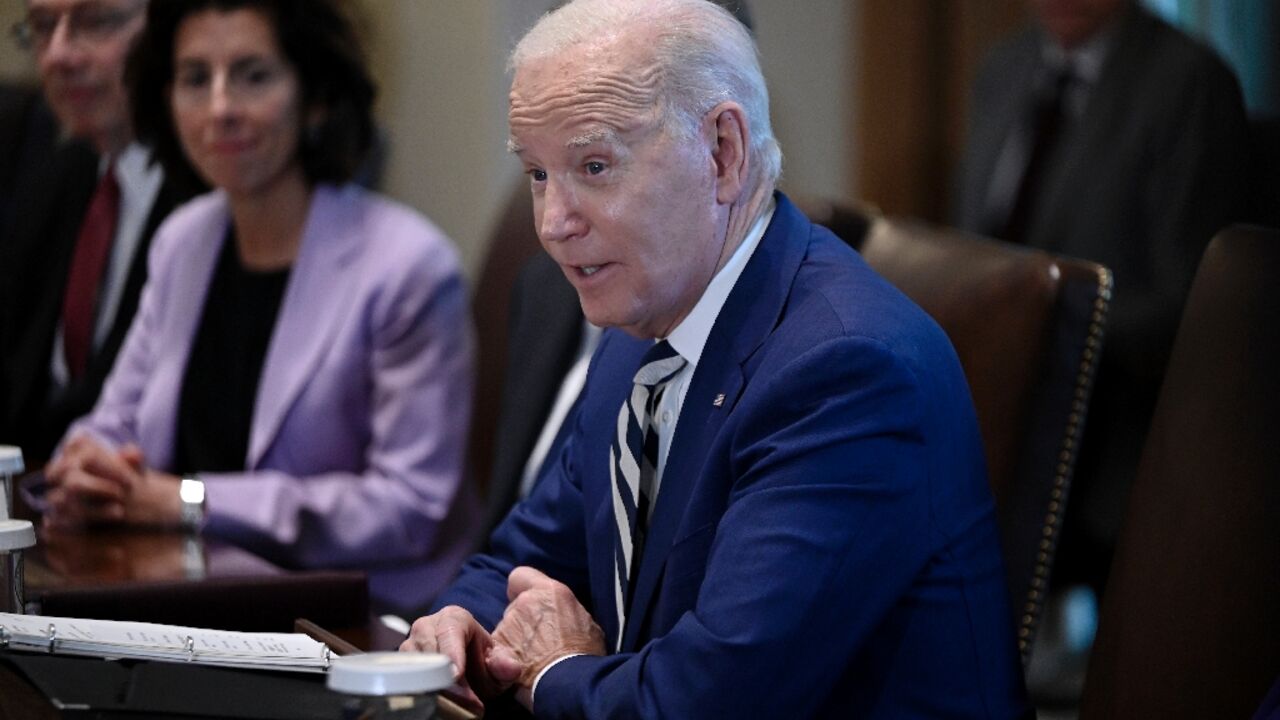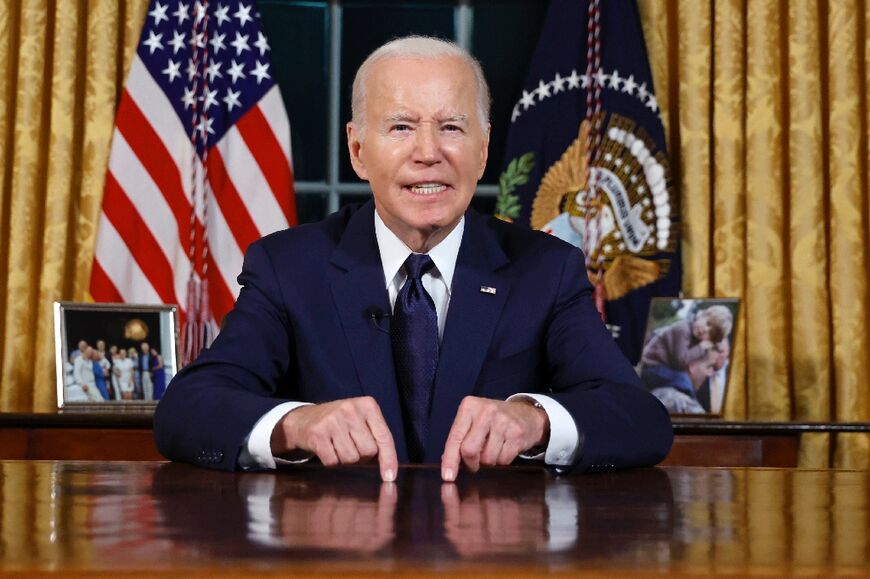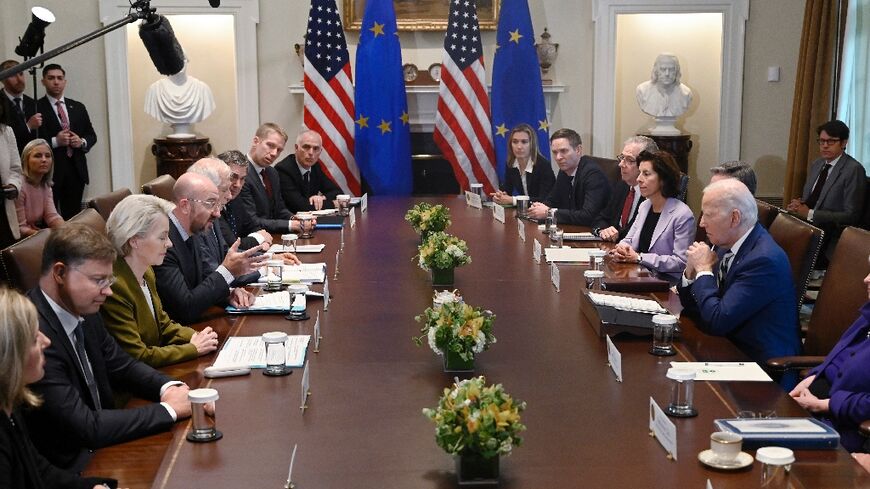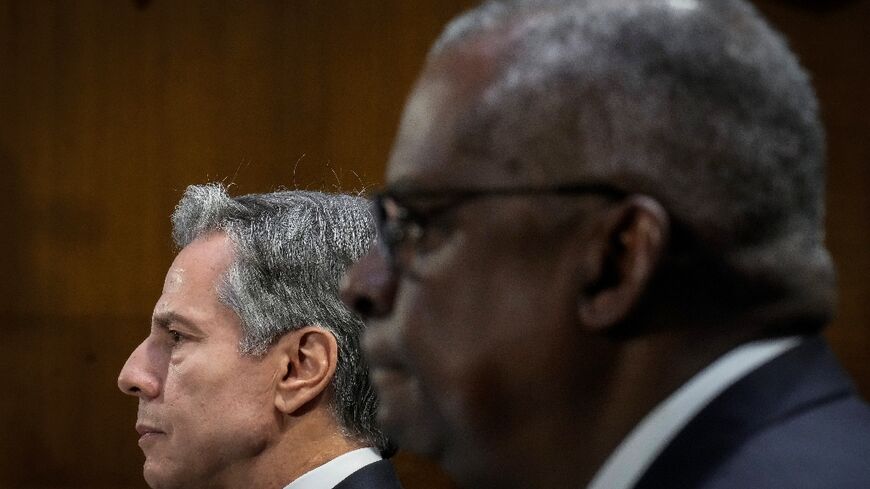Biden requests $106 bn for Ukraine, Israel, border

President Joe Biden requested urgent military aid for Ukraine and Israel in a massive $106 billion security package Friday, but he faces a tough battle to get it through a paralyzed US Congress.
Biden's demand came a day after he drew a direct link between the Hamas attack on Israel and Russian President Vladimir Putin's invasion of Ukraine to convince Americans that the United States must show global leadership.
The 80-year-old Democrat argued in an impassioned Oval Office speech that the huge sums involved -- a total of $105.85 billion, including $61 billion in military aid for Ukraine and $14 billion for Israel -- would secure US interests for generations.
But Biden's request comes as the US House of Representatives remains in chaos, with Republicans, who hold a narrow majority, in their worst meltdown in decades and unable to elect a speaker for the past 17 days.
"The world is watching and the American people rightly expect their leaders to come together and deliver on these priorities," White House Office of Management and Budget director Shalanda Young said in a letter to Congress.
"I urge Congress to address them as part of a comprehensive, bipartisan agreement in the weeks ahead."
Ukrainian President Volodymyr Zelensky, who visited Washington in September to seek more military aid against Russia, said he was "grateful" to Biden for proposing the aid.
"We are counting on both parties in Congress to bend the arch of history toward good," Zelensky said on X, formerly Twitter.
Biden's mega aid package throws an olive branch to Republicans in the form of $14 billion in funding for the migration crisis at the southern border with Mexico, including $6.4 billion for security -- a central concern for the right-wing party.
- 'Chaos' -
The package also includes $7 billion for countering China and strengthening allies in the Asia-Pacific region, and over $9 billion for humanitarian assistance for Gaza, Ukraine and Israel.
Most importantly, however, the huge funding ask is an attempt to bolster waning support for Ukraine by linking it with funding for Israel -- which does have widespread bipartisan backing.
Whether Republicans can set aside their squabbling and choose a speaker so that Biden's request can even get a hearing remains unclear.
Republicans dropped hardliner Jim Jordan as their latest candidate on Friday after he failed to secure victory on his third attempt.
An earlier request for aid for Ukraine was stalled when Republican House speaker Kevin McCarthy was ousted in a rebellion in September.
A growing number of Republicans -- and US voters in general -- oppose adding to the $43.9 billion in security assistance that the United States has committed to Ukraine since Moscow launched its full-scale invasion in February 2022.
But considerable support remains in Congress, including among prominent Republicans in the Senate, where the Democrats hold the majority.
Senate Majority leader Chuck Schumer promised quick action in the upper chamber and urged Republicans to sort themselves out.
"This legislation is too important to wait for the House to settle their chaos," he said in a statement.
Biden's speech on Thursday drew the link between the wars in Ukraine and Israel as part of a vision of the US as a "beacon to the world" confronting "terrorists" like Hamas and "tyrants" like Putin.
It was Biden's bid to remind Americans of the decades-long US geopolitical stance as leader of the Western democracies.
The Kremlin on Friday denounced Biden's comments.
"We do not accept such a tone in relation to the Russian Federation, in relation to our president," Kremlin spokesman Dmitry Peskov told reporters.
Biden, meanwhile, welcomed European Union leaders Charles Michel and Ursula von der Leyen for a summit at the White House on Friday, where they delivered a message of unity on the conflicts in Gaza and Ukraine.






